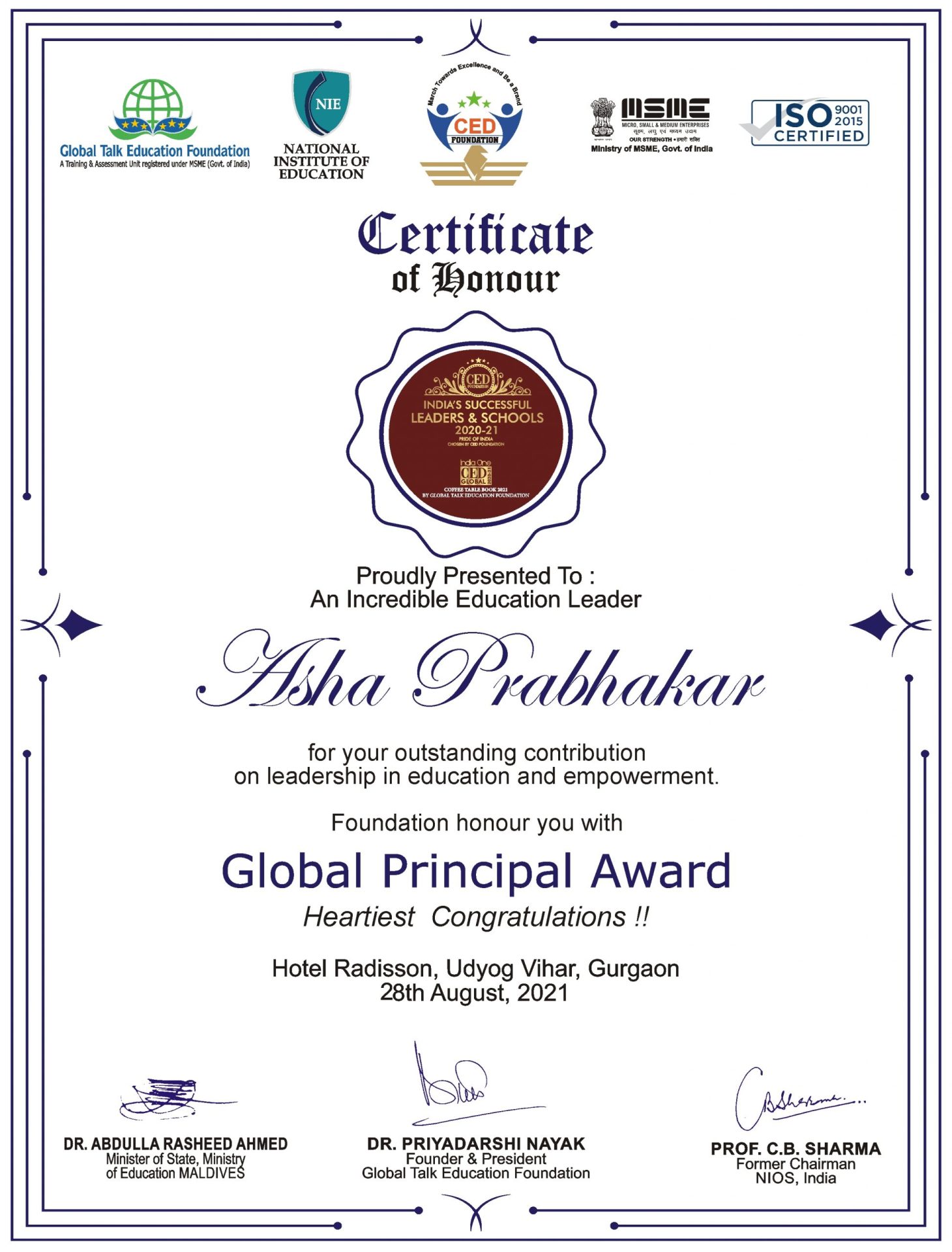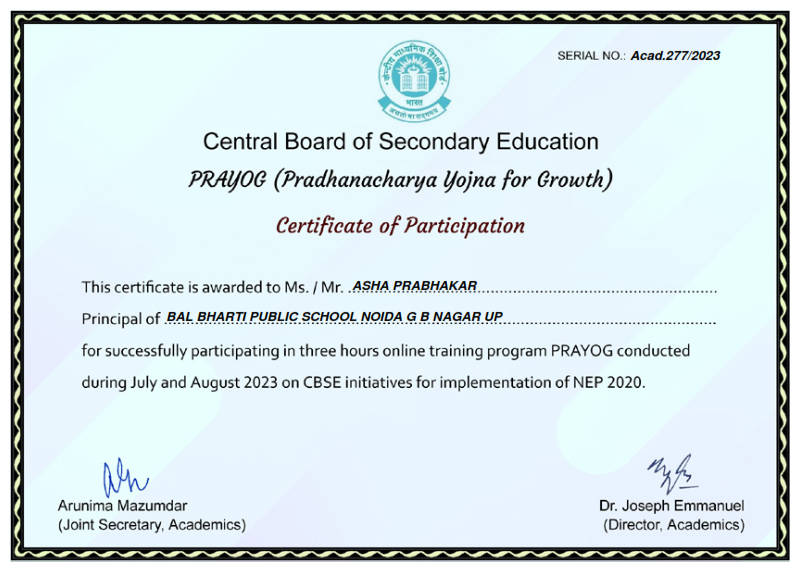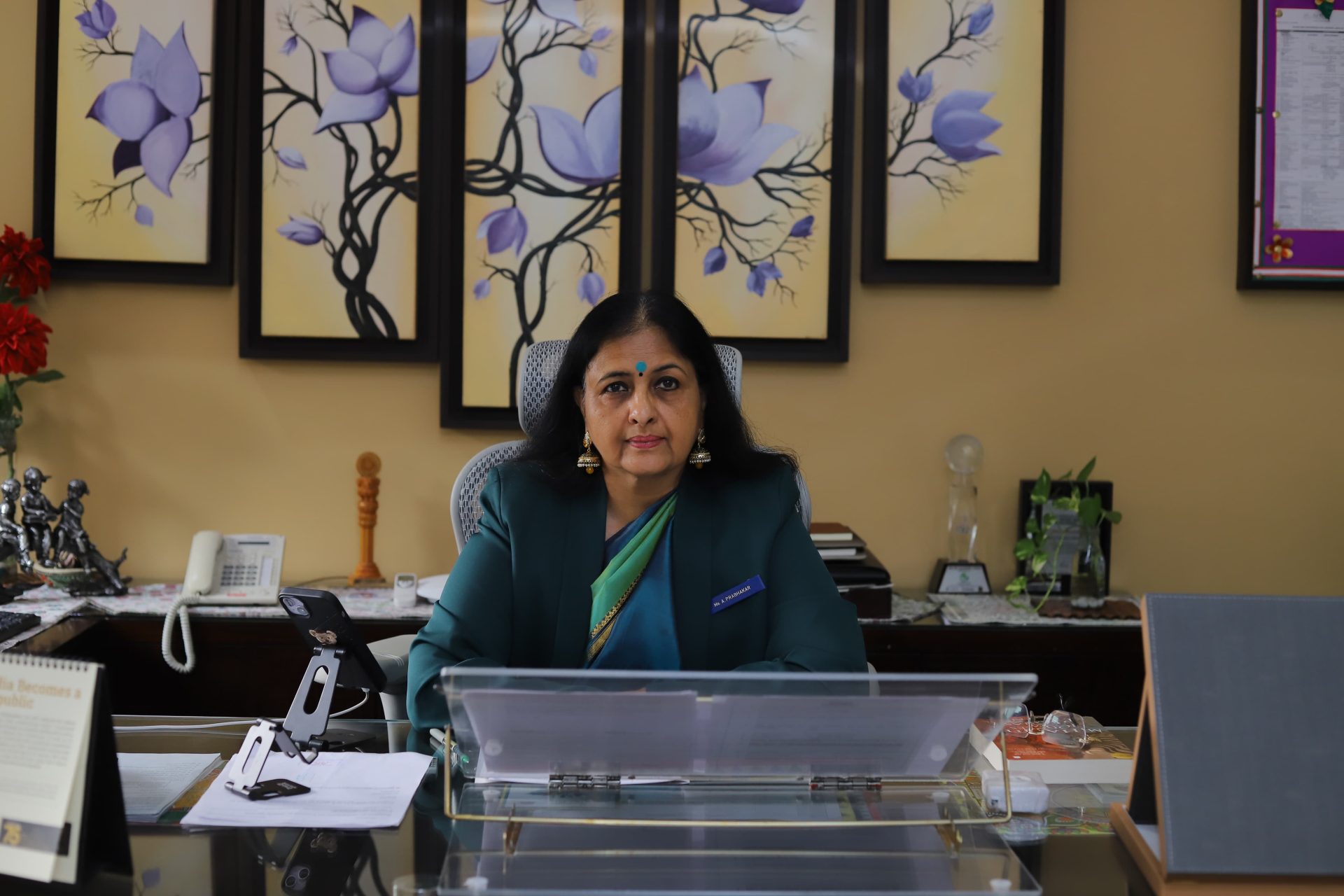SMC QUARTERLY REPORTS
PRINCIPAL’S REPORT
17 DECEMBER, 2025 – 16 MARCH, 2025
SMC QUARTERLY REPORTS
PRINCIPAL’S REPORT
PRINCIPAL'S ANNUAL REPORT
Write up on Bullying
(When School Becomes Hell)
Message from Principal's Desk (Annual Day)
MERITORIOUS ACHIEVEMENTS
The School Principal was honoured with Global Principal Award by the Global Talk Education Foundation and Ministry of Micro, Small and Medium Enterprises (MSME) for her outstanding contribution on Leadership in Education and Empowerment in a glittering ceremony held at Hotel Radisson, Gurgaon

First, there are systemic problems in our education machinery. India does not have trained teachers, who can even understand, leave alone practice the methods being recommended by the various frameworks. According, to a world bank survey, the average pupil teacher ratio at the Primary level in India is ranging between 1:35 and 1:40 the highest amongst emerging economics and much higher when compared to the developed world. A high pupil teacher ratio impedes the imparting of soft skills and has an adverse impact on the emotional growth of children. Finally, the heavily regulated private sector is hampered by archaic laws that discourage and even prohibit innovation.
The second set of reasons concerns the abundance of alternatives, (all jugadu) which renders the formal system ineffective, if not completely useless. The most glaring example is that of on-job training. The formal system is so delinked from the industry requirement that practically every new entrant in the work force has to be first skilled by the employer. The National Employability Report 2014 found that only 18% of the engineering graduats are employable.
India’s educational system behaves like an industry of the colonial era. It neither recognizes the current needs of the students ,nor provide the desired infrastructure. Our children are put into a machine. It takes 12 years for a finished product. After this, many choose to be on shop floor for another four years and become a certified product. Even fewer remain in production for another four to five years to become super special luxury products.
In this age of information age, our education system is one of the things most reminiscent of the bygone industrial age. It was designed for a standardized work force to fill govt Offices and factories. Today, for the most part, a computer can handle standardization tasks. What we need now is differentiation and innovation
India needs extensive experiments in education. For example, we should re-think the necessity of children spending 12 years in school compartmentalized into different classes with a nationally fixed curriculum. We need to experiment to find which is the most desirable way to develop children. Why should two kids in class study the same level of Maths and History, when one of them is passionate about Maths and the other about History? Should they do so just because they are of the same age? The initial 12 years, when children are most capable of learning can be better spent in learning some other skills that will help them lead a happier and successful life. A similar re-thinking is needed for pedagogy and teacher-training laws and regulations and emotional and integral development..
In this process, policy makers should be facilitators and not implementors. They should improve the capacity of the failing public infrastructure, provide authority to the capable institutes and allow flexibility where the private sector is concerned. To conclude, in the current situation people achieve not because of the system, but despite the system. This has to change so that we can effectively use our human resources.


